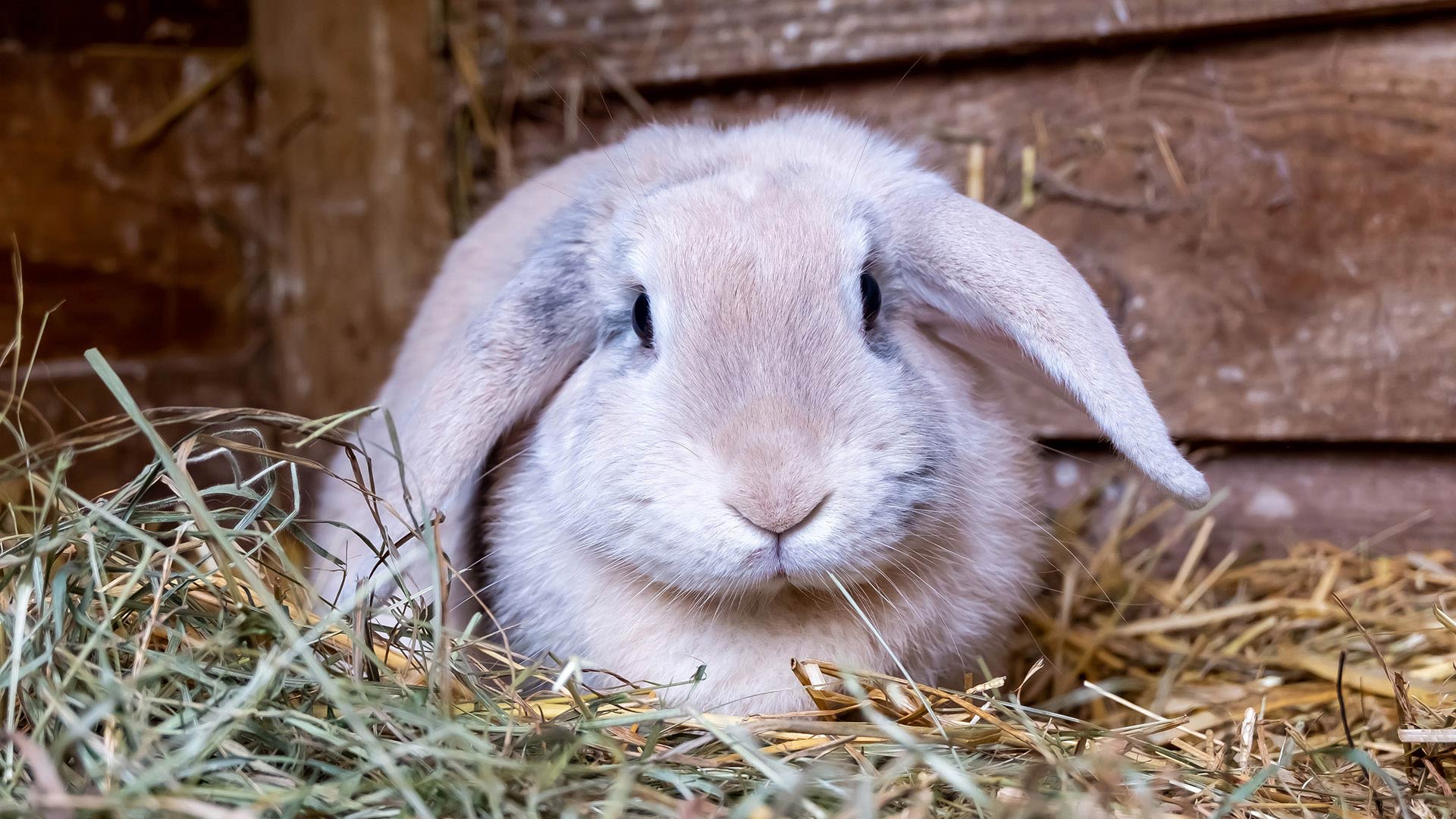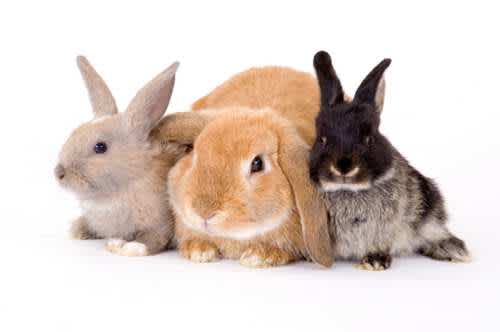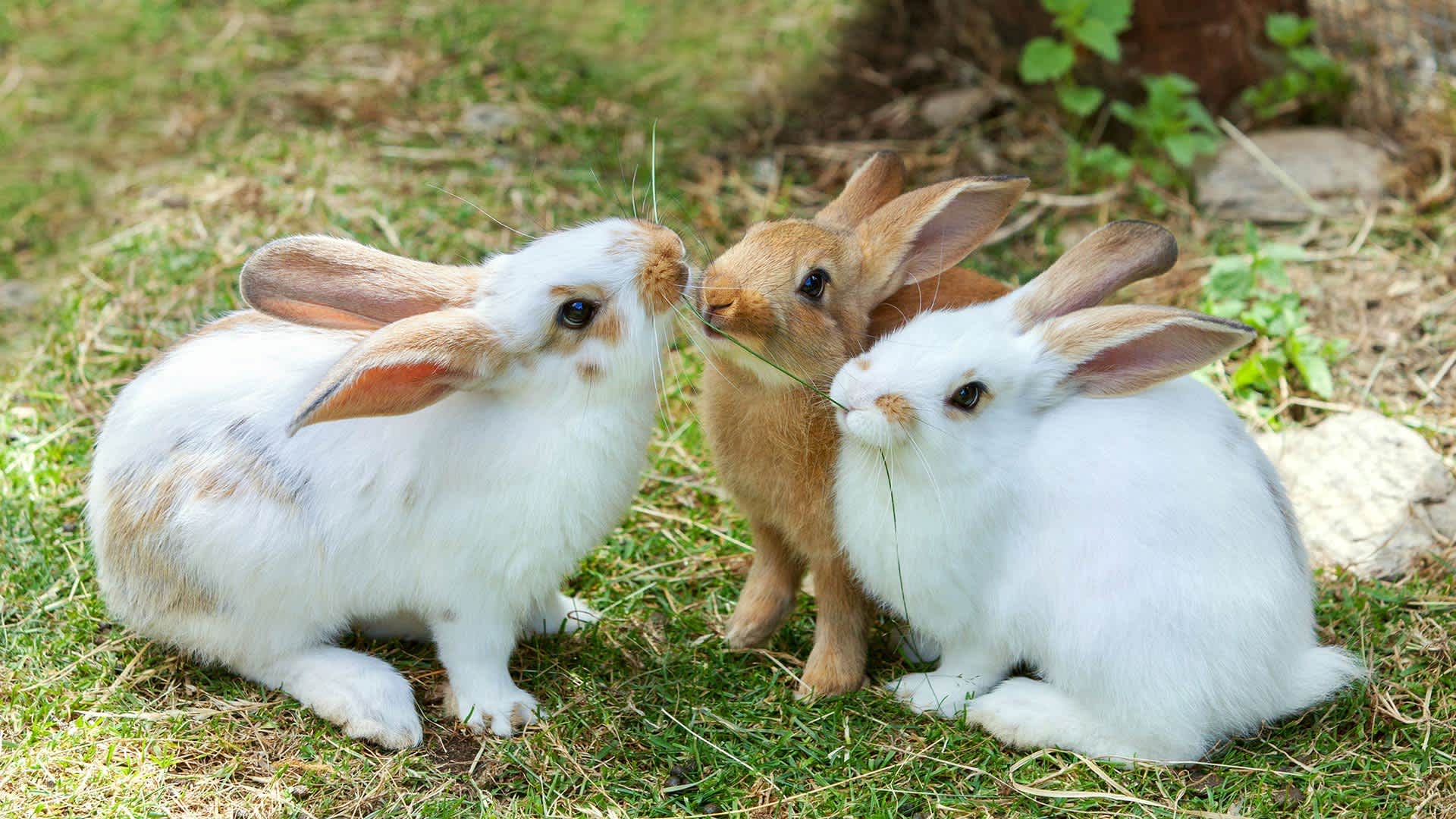Rabbit

Rabbits and children are the best buddies. Who else can you have so much fun playing with? It is important that you take good care of your pet and feed it well. Nutrition and health are inextricably entwined. Good, healthy feed is absolutely essential for healthy, high-spirited animals with beautiful coats. HobbyFirst Hope Farms Rabbit Pellet, Mix, Complete, Balance, Muesli, and Granola ensure a good condition. Rabbits were already being used for sports, meat, and fur (Angora rabbit) around the year 1100. Later, around the 1800s, there were special rabbit-breeding clubs that dealt with a special breed (domesticated). Nowadays, there are about sixty breeds, in different colours and varieties. Around the 1900s, people also started keeping rabbits as pets.

Buying a rabbit
Before you buy a rabbit, you must be sure you can take good care of it. Rabbits are social animals; it is not necessary to keep them in a rabbit hutch all the time. But it is desirable to provide them with the proper shelter.
What you must consider:
Space to move around
Provide fresh water, hay, and food daily
Daily cuddles
Regular brushing
Clean the cage weekly
Visit to the veterinarian, e.g. for annual vaccinations
Which rabbit is best for you?
Your own preference is important, of course, but also whether it is an indoor or outdoor rabbit. Domestic rabbits like to run about and hide in the house. You still have to play and cuddle your rabbit every day if you keep it in a cage outside. There are more than 60 breeds in different sizes, colours, and coats. Some rabbits have lop ears, others have a thick coat, or are long-haired (Angora), or are dwarf breeds with cute little muzzles. Rabbits differ not only in appearance, but also in character. The smaller rabbit breeds are often a little feistier and more temperamental than the larger ones, which have a more even temperament. This feistiness is expressed in a lot of standing on their hind legs, in agility, and in alertness. Sometimes, they’re a little difficult to handle.

What do rabbits eat?
In the wild, rabbits eat grass, weeds, leaves, shoots, twigs, and the bark from shrubs, brambles and small trees. They also eat grains, carrots, fruits, and vegetables. Rabbits are herbivores and their digestion is very efficient. Indigestible fibres leave the body quickly and the digestible fibres are absorbed.
What do I feed my rabbit?
Rabbits must be fed twice a day, every morning and afternoon. Rabbits need fibre-rich feed to keep their stomach and intestinal tract healthy and to stimulate gnawing so that their ever-growing teeth remain short. Feed your rabbit enough HobbyFirst Hay along with HobbyFirst Hope Farms Rabbit Granola or Rabbit Complete (pellets) every day. If you observe the habits of your rabbit, you’ll see that it consumes certain types of soft faeces. This is a natural rabbit behaviour and is called ‘coprophagy’. Because the rabbit consumes its faeces, the ingredients are used efficiently. You can compare that to how a cow chews its cud (ruminating).
Facts
Rabbits are herbivores
In the wild, rabbits eat grass, weeds, leaves, shoots, and twigs